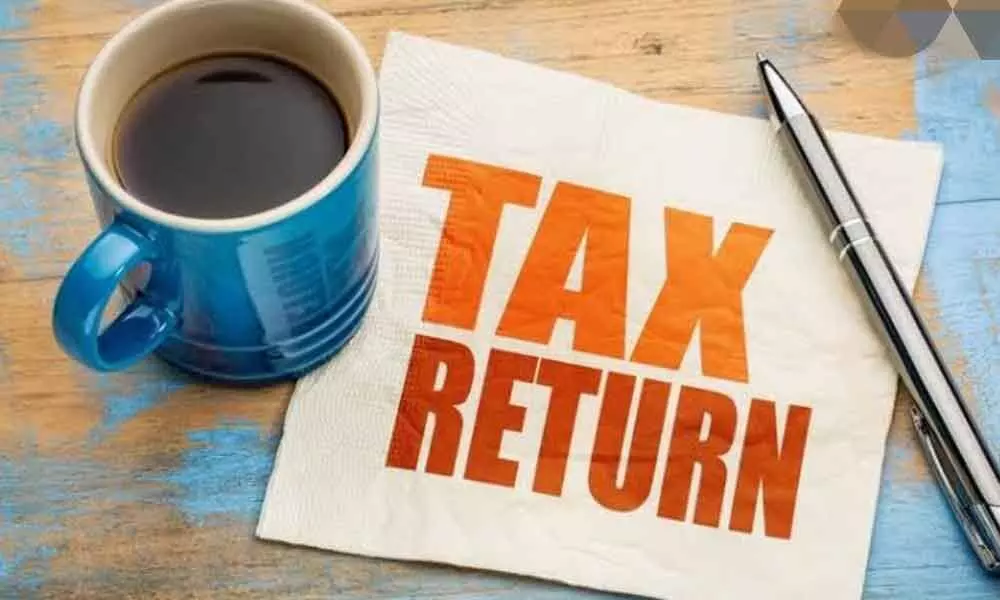Missed ITR filing deadline of Dec 31? Here's what you can do
I have missed the ITR filing deadline amid huge anticipation of further extension of the due date.
image for illustrative purpose

I have missed the ITR filing deadline amid huge anticipation of further extension of the due date. Do I need to pay Rs 10,000 as a penalty if I file ITR in January 2022? Potnur Sekhar, Tekkali
Your panic is justified, but you should have prioritized filing returns to avoid missing the deadline. Filing the IT returns is an annual ritual for every taxpayer. The extension of due dates of the income tax return has become a yearly ritual over the period. Due dates were extended twice for the financial year 2020-21 due to the revamp of the income tax portal and the ongoing Covid-19 pandemic. Knowing the benefits of filing ITR without delay and sticking to the due date might be reward enough. The original due date of ITR was July 31, 2021, for the financial year 2020-21. The regular due date was extended to 30 September 2021 and then to 31 December 2021. Unfortunately, you could not avail of the opportunity. Section 234F has been introduced with effect from FY18 and makes the taxpayers liable to a maximum penalty of Rs 10,000 if they file the income tax returns after the due date.
The good news is that the penalty amount has been reduced by half. Until FY20, the maximum penalty for non-filing income tax returns by the due date was Rs 10,000. You need to pay the penalty amount if you file income tax returns for the financial year 2020-21, after 31 December 2021. The ITR will be considered as belated returns. Hence, the assessee or taxpayer will have to pay up to Rs 5,000 as a penalty under Section 234F of the Income-tax Act. The maximum penalty is Rs 1,000 for assessees whose total income is below 5,00,000. This means you can get away by paying Rs 1,000 if your total income does not exceed Rs 5,00,000 during the last financial year.
The Income Tax Department may levy heavy penalties, up to 50 per cent of the tax if the ITR is not filed by 31st March 2022. Missing the ITR deadline is certainly a detriment to your financial health. In the event of an excess amount of tax paid, collected or withheld or deducted by way of advance tax or TCS or TDS, your refund will be delayed. You could have earned gains or interest had it been claimed earlier and invested. Further, you are not entitled to interest on the excess tax paid by you. There can be instances that carry forward losses such as loss from house property, loss from business, loss from speculative business, and short-term and long-term capital loss.
These losses under any head of income can be carried forward only if the tax return is filed on or before 31 July 2021. You are not permitted to carry forward your losses except the income from house property (subject to the allowable limit). In the future, file the ITR within the original due date to carry forward losses to subsequent years, which can be used to set off against the income of the following years. Besides losing certain benefits and advantages, you will also have to pay interest on the tax demand, if any. You would need to pay interest under sections 234A, 234B and 234C. The provisions of rule 119A of the Income-tax Act stipulate the computation of interest.
Is it good to invest in gold in the falling market? - Lalitha S, Bangalore
The prices of gold have witnessed many turbulent years as well as tumultuous periods in history so far. Gold prices in global markets are set to record low in five years. The yellow metal gave lucrative returns in previous years but fell by five percent in 2021. In 2019 and 2020, it delivered thirteen and twenty-six percent, respectively. Historically, buying gold is considered a natural hedge against inflation and the yellow metal is the most sought-after investment during turbulent times. The investment in gold has grown over the years. Undoubtedly, gold prices will shine but may not touch skies so, swiftly as they did in most of 2020. Diversification of the portfolio is vital for every investor.
Do not treat gold as a mainstream asset. Gold is an alternative to traditional saving instruments, equity, mutual funds and bonds as it ensures risk-adjusted returns. The yellow metal's supply is geographically diverse, and various governments trade in gold. Hence, the chances of it losing its value is substantially low. However, gold prices may continue to fall to pre-pandemic levels and 2022 may not be a favourable backdrop for gold prices. This is a golden opportunity for investing in gold to take advantage of the falling prices. However, you must hold it for a long time horizon.
(The author is a SEBI licensed Research Analyst. The alumnus of the Indian Institute of Foreign Trade (IIFT), he had held leadership roles at National Geographic, Reliance Radio Television Luxembourg, STAR TV, etc)

